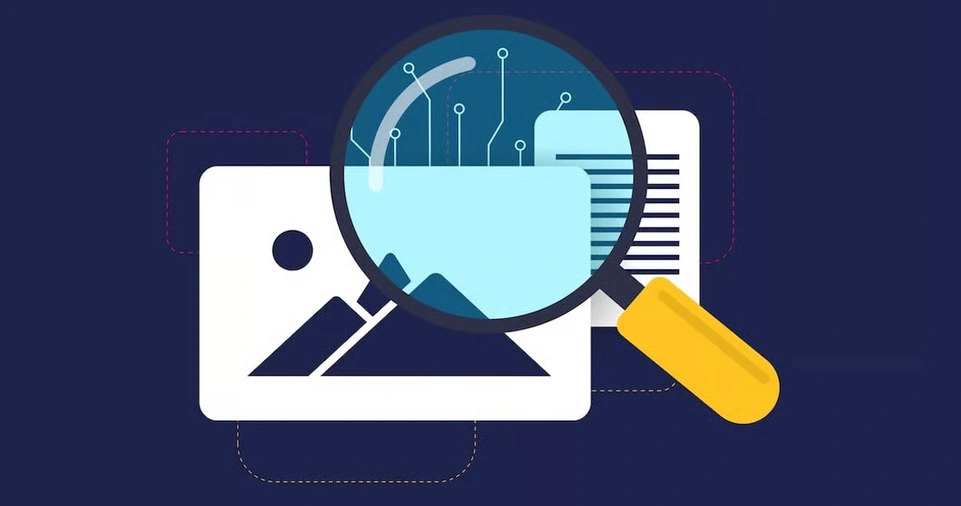In today’s fast-paced digital era, Artificial Intelligence (AI) has emerged as a game-changer, enabling companies to automate repetitive tasks, analyze vast amounts of data, and improve decision-making processes.
From small startups to large enterprises, AI-powered solutions are transforming industries by offering intelligent automation, predictive analytics, and machine learning-driven insights.
AI tools are not just limited to automation; they also enhance customer interactions, improve marketing strategies, and optimize supply chain management.
Whether it’s a chatbot handling customer inquiries, machine learning models predicting market trends, or AI-driven analytics providing valuable insights, AI is reshaping business operations like never before.
In this article, we will explore how businesses can leverage AI tools to streamline operations, increase productivity, and stay competitive in an ever-evolving marketplace.
We will also discuss best practices, real-world applications, and future trends in AI adoption. Let’s dive into the world of AI-driven business optimization.
Understanding the Role of AI in Business Operations
What is Artificial Intelligence?
Artificial Intelligence (AI) refers to the simulation of human intelligence in machines, enabling them to perform tasks such as learning, reasoning, problem-solving, and decision-making.
AI leverages technologies like machine learning, natural language processing (NLP), robotic process automation (RPA), and computer vision to automate tasks, enhance productivity, and drive efficiency in business operations.
Why Businesses Should Embrace AI
Businesses that integrate AI into their operations benefit from several advantages:
- Increased Efficiency: AI-powered automation minimizes human intervention in repetitive and time-consuming tasks, allowing employees to focus on strategic activities.
- Cost Reduction: AI reduces labor costs, optimizes resource allocation, and minimizes operational expenses.
- Enhanced Decision-Making: AI-driven analytics provide data-driven insights, improving decision-making accuracy and strategic planning.
- Improved Customer Experience: AI chatbots, virtual assistants, and recommendation engines enhance customer interactions and engagement.
- Competitive Advantage: AI enables businesses to stay ahead by predicting market trends, optimizing supply chains, and personalizing marketing efforts.
How to Implement AI Tools in Business Operations

Assess Your Business Needs
Before implementing AI, businesses must assess their existing workflows, identify bottlenecks, and determine areas where AI can drive improvements.
Key considerations include:
- Pain Points: Identify manual and repetitive tasks that can be automated.
- Data Availability: Ensure access to high-quality data for training AI models.
- Budget Constraints: Determine the budget allocation for AI implementation.
- Integration Feasibility: Assess whether AI tools can integrate seamlessly with existing software and infrastructure.
Select the Right AI Tools
AI tools vary based on their applications and functionalities.
Here are some essential AI categories:
Robotic Process Automation (RPA)
RPA automates rule-based and repetitive tasks, such as:
- Data entry and processing
- Invoice generation and payments
- Report generation and email automation
Popular RPA Tools: UiPath, Automation Anywhere, Blue Prism
AI-Powered Data Analytics
AI-driven data analytics platforms help businesses analyze vast datasets, extract insights, and make informed decisions.
These tools provide:
- Predictive analytics for demand forecasting
- Customer behavior analysis
- Market trend predictions
Popular AI Analytics Tools: Tableau, Google Analytics, IBM Watson Analytics
Natural Language Processing (NLP) and Chatbots
NLP enables machines to understand, interpret, and generate human language, enhancing customer support and engagement.
Businesses use:
- AI chatbots for automated customer service
- Sentiment analysis tools for brand reputation management
- Voice assistants for hands-free interactions
Popular NLP Tools: ChatGPT, IBM Watson Assistant, Amazon Lex
AI in Marketing Automation
AI-driven marketing tools optimize campaigns, personalize content, and analyze customer preferences.
Applications include:
- Automated email marketing campaigns
- AI-powered content recommendations
- Customer segmentation and targeting
Popular Marketing AI Tools: HubSpot, Marketo, Persado
AI in Supply Chain and Inventory Management
AI optimizes logistics, demand forecasting, and warehouse management.
Key benefits include:
- Predictive maintenance of machinery
- Real-time inventory tracking
- Automated procurement processes
Popular Supply Chain AI Tools: SAP Integrated Business Planning, Llamasoft, ClearMetal
Best Practices for Implementing AI in Business
Start Small with Pilot Projects
Instead of a full-scale AI adoption, businesses should initiate AI implementation with pilot projects. Choose a specific area, test AI capabilities, and analyze results before expanding.
Ensure Data Quality
AI models require accurate and well-structured data for optimal performance.
Ensure data cleaning, standardization, and validation to enhance AI accuracy and efficiency.
Employee Training and Change Management
AI implementation may face resistance from employees.
Businesses should:
- Conduct training programs to familiarize employees with AI tools
- Highlight AI’s role in enhancing productivity rather than replacing jobs
- Foster a culture of innovation and AI adoption
Monitor AI Performance and Optimize
AI models require continuous monitoring and improvements.
Businesses should:
- Track AI-generated insights and accuracy levels
- Make necessary adjustments based on performance metrics
- Implement feedback loops for continuous AI enhancement
ALSO READ: For Investing How to Choose Between Stocks, Bonds, and Mutual Funds
Real-World Applications of AI in Business

AI in E-Commerce
- Personalized product recommendations
- AI-powered chatbots for customer support
- Automated pricing strategies based on market demand
AI in Healthcare
- AI-driven diagnostics and medical imaging analysis
- Virtual health assistants and patient monitoring
- Predictive analytics for disease outbreaks
AI in Finance
- AI-based fraud detection and risk assessment
- Automated financial reporting and forecasting
- AI-powered investment portfolio management
AI in Human Resources
- AI-driven recruitment and resume screening
- Automated employee onboarding processes
- Sentiment analysis for employee engagement
Future Trends in AI for Business Operations
AI-Powered Hyperautomation
Hyperautomation combines AI, machine learning, and RPA to create fully autonomous business processes, enhancing productivity and efficiency.
AI-Driven Cybersecurity
AI is transforming cybersecurity by:
- Detecting and preventing cyber threats in real-time
- Automating security compliance monitoring
- Enhancing fraud detection and identity verification
AI in Voice and Visual Search
Businesses are leveraging AI to optimize voice and visual search capabilities, improving accessibility and enhancing user experiences.
Edge AI for Real-Time Decision-Making
Edge AI enables AI computation at the edge of networks, reducing latency and improving real-time decision-making capabilities for businesses.
ALSO READ: How to Manage Investment Risks Like a Pro
Conclusion
AI tools have become indispensable for modern businesses seeking efficiency, cost savings, and competitive advantages.
From automating routine tasks to enhancing decision-making and customer engagement, AI is revolutionizing every aspect of business operations.
However, successful AI adoption requires careful planning, data-driven strategies, and continuous optimization.
By identifying the right AI solutions, integrating them effectively, and fostering a culture of innovation, businesses can unlock AI’s full potential and position themselves for long-term success.
As AI technology continues to evolve, staying ahead of emerging trends will be crucial for maintaining a competitive edge in an AI-driven world.
Are you ready to integrate AI into your business?
Start small, experiment with AI tools, and gradually scale for maximum impact!











